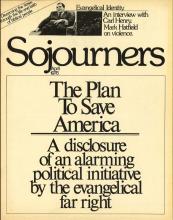Dr. Henry is internationally recognized as one of the principal leaders of the evangelical movement. He was the founding editor of Christianity Today, has been a professor of theology at Northern Baptist and Fuller Theological Seminaries, and is the author of countless books and articles. At the time of the article, he was writing a monthly series in Christianity Today entitled “Evangelicals in Search of Identity.”
Jim: What are some of the key issues involved in an evangelical identity now, in terms of direction, and especially in relationship to the young evangelical phenomenon?
Dr. Henry: We’re at a time when loose coalitions of special evangelical emphases have been emerging. I think the young evangelicals especially represent that sort of loose coalition of particular concerns. While it’s good that we begin to understand each other, I don’t think that one will ever get from this sort of cross-pollination what the evangelical movement ideally ought to be.
What is missing is, first of all, a vision for the comprehensive truth of God. You get the left shooting at the right, the right shooting at the left; the four spiritual laws emphasis and the social gospel emphasis lining up against each other; and the inerrancy group lining up against those who compromise inerrancy. So the potential for division seems to overhang the modern situation as fully as the encouraging signs of conversation and liaison.
Secondly, there is the lack of a sense of body in the evangelical community. It is fragmented. Some people call it American Independence, which permeates the evangelical community. But it’s more than that. There’s an excessive spirit of independence that characterizes evangelicals almost world wide.
Wes: What would a comprehensive view of God’s revelation begin to look like?
Read the Full Article

